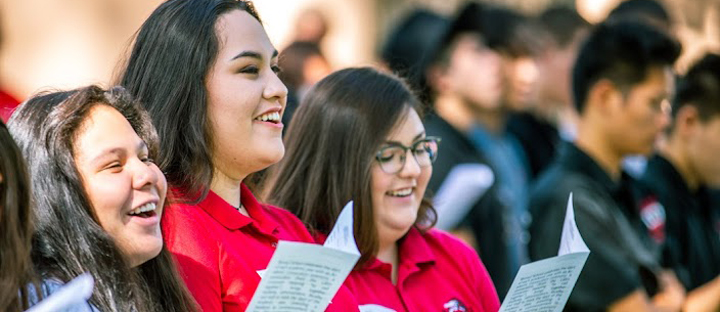Spirituality is an important part of being human.
But how do you educate the spirit? And why?
In this article, hear from teachers, parents, and students about religion as part of a holistic education. One that sparks curiosity, and prepares students for college (and life) in unexpected ways. Menaul School is a small, Christian private middle and high school in Albuquerque, New Mexico.
No Memorization Needed—Deeper Understanding is the Goal!
Janet, a former parent (and board member) shares this story:
It was the first day of 6th grade for her son Andy. As she drove onto the Menaul School campus to drop him off that first time, she was overwhelmed by questions.
For one, she asked herself, “What am I doing; am I making a mistake?”
That’s because her family did not have a religious tradition that they followed. In part, she was worried that her son would feel out of place at a “religious school.”
Not so. Andy thrived, thanks to the supportive environment that built on his strengths and challenged him to think about big questions.
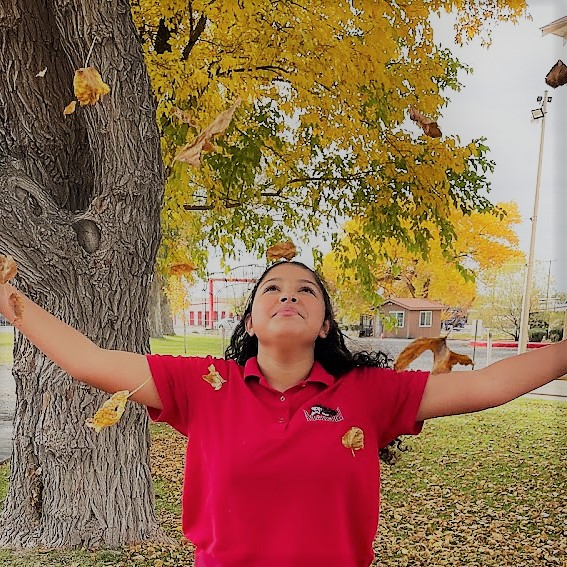
Recognizing the Spirit: An Important Part of the Whole
Even a non-religious person can experience the spiritual side of a great work of art, literature, or music.
The chance to reflect, feel uplifted, or to bring intellectual or spiritual nourishment into one’s life—can keep anyone going on tough days.
Menaul School stands behind the idea that if you neglect the spirit in education, you’re leaving out one of the most significant parts of being human.
When teachers ask students to contemplate big spiritual questions—without answering the questions for them, students gain a deeper experience of the world.
Practice for the Real World
Micaela, parent of an 8th grade student, says:
While we were looking at schools for our son, we always wanted to have him be able to learn more and grow in our faith, but we also wanted him to learn as much as he could about the many other faiths in this world.
Menaul School has opened his eyes to other cultures and religions in ways that have exceeded our hopes and expectations.
While the overall program is based on Christian (specifically, Presbyterian) beliefs and practices, at Menaul School, students learn about and explore the world’s religions in the way that is most appropriate for them.
The expectation that they are respectful to others while doing so, is great practice for life in the real world.
Dive Even Deeper—Banish Boredom
Academic religious studies is inherently interdisciplinary. Religion is universal, it infuses every aspect of human culture from the beginning. So religious studies is not simply the study of the Bible and other sacred texts, but encompasses arts and music, literature, history, psychology, sociology, philosophy, anthropology, political science, and more. (That is why I majored in it!)
Mr. Sitler, who has taught religion at Menaul for 24 years
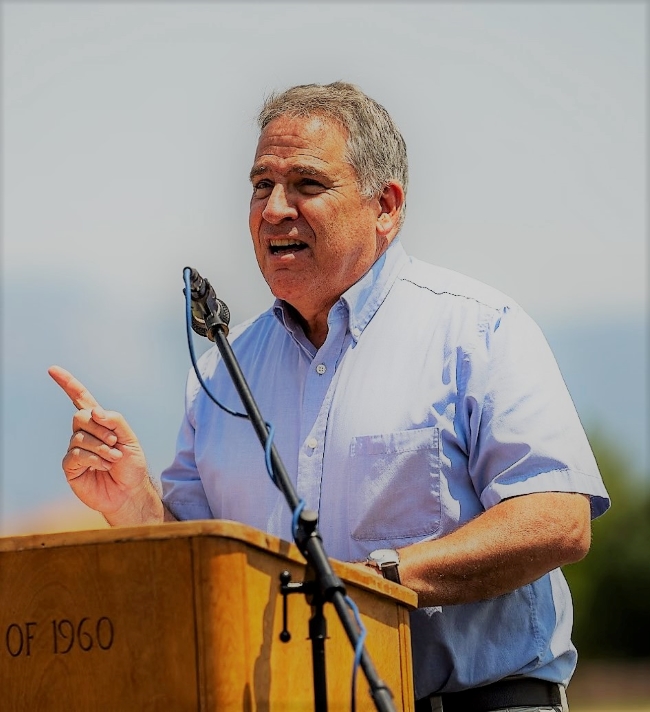
Mr. Sitler followed his passion and curiosity, leading him into a career he loves. Anyone who knows him, knows he is rarely bored.
There is so much more to life than preparing for college. While it is important, it isn’t all there is to life.
Wrapping yourself up in a quest to “get into the best college” and “be the best in your class” might become so stress inducing that you lose sight of why you’re doing it.
Yes, it’s important to set goals for yourself, and make plans for the future.
And, it’s possible to aim high, while also strengthened from within, by a sense of curiosity, and connection.
Ethics Curriculum: Big Questions, Deeper Meanings
Reverend Takako’s Ethics course for 7th grade is basically a class on Jesus’ parables. The highlight of this class is about becoming aware of one’s inner moral center.
Jesus’ teachings often upset the surface understanding of traditional teachings, in order to reveal the deeper moral center or spiritual authority.
Why is this important? She focuses on the deeper message of Jesus’ teachings, which is inspiring and sometimes surprising to students.
It’s easier for them to understand, when they know the “essence” of Jesus’ teachings, and are given the time to think about their own interpretations of it.
Rethink College Prep—Get Curious!
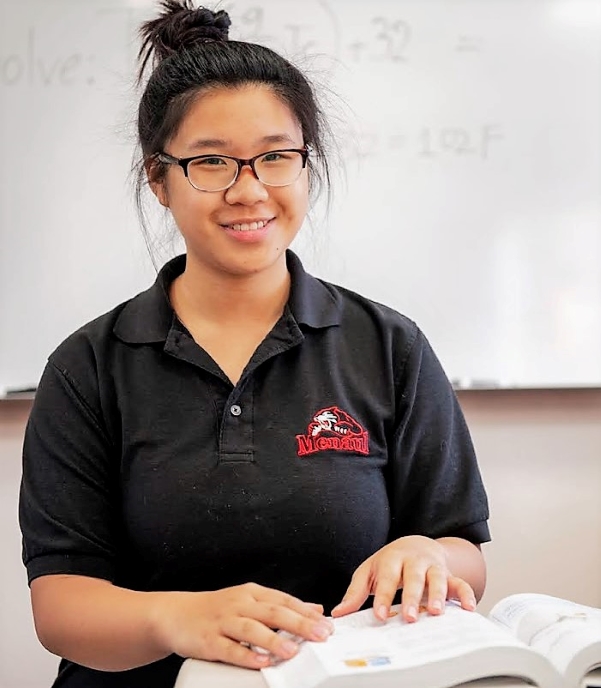
Menaul School staff and faculty recently read Ian Leslie’s book Curious: The Desire to Know and Why Your Future Depends on It.
In a section on education, Leslie shared that 3 out of 4 teachers say that students have been conditioned to expect quick answers.
Because of how students (and let’s face it, most of us) use digital tech, students resist the tough mental work. They resist problems that don’t give quick answers.
Teachers complain that students “ …need skills that are different than ‘spit, spit, there’s the answer.’”
Leslie takes the position that curiosity is the “edge” that makes certain students more successful than their less curious peers, when in college.
Academic Motivation is Key
“I don’t agree with those who claim the internet is making us stupid. The only person or thing that can make you stupid or incurious is you. Used in the right way, the Internet is an amazing springboard to intellectual exploration.”
Ian Leslie, author of Curious: The Desire to Know and Why Your Future Depends on It.
He says that those who understand that, are the most likely to get the greatest rewards in life—including success in college and career.
Yet, the majority of college students see a decline in their motivation, within their first year. Surely there are multiple reasons for this decline, yet Leslie’s research points to curiosity as a major factor.
Curiosity sparks academic motivation.
Talk About a Spark!
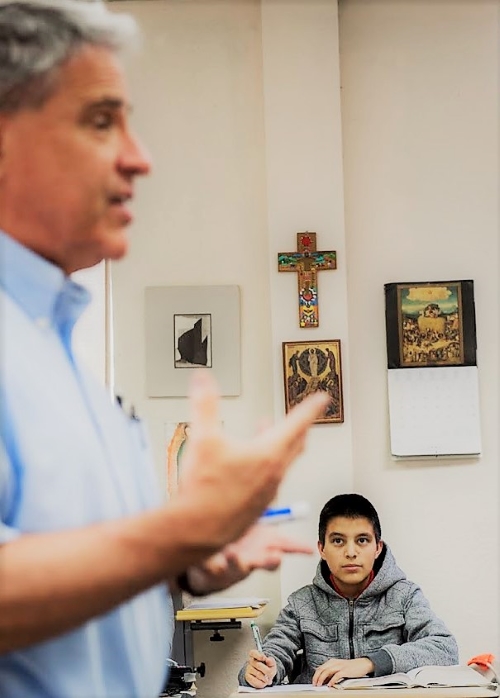
Menaul School’s Mr. Sitler speaks enthusiastically about the final project in the 11th grade Ethics class, one of his favorites to teach.
Every semester I look forward to the final presentation in junior Ethics. Each students selects a topic of applied ethics (“Is X ethically justifiable?”) and then proposes how different ethical theories would answer the question. What would a utilitarian say? A natural law thinker? A Kantian?
Then the student leads a class discussion during which they each have an opportunity to express and explain their opinion. Some topics spark very spirited debate. The goal is not only for students to start understanding their own moral reasoning, but also to understand why others may have a different perspective.
Add the fact that religion classes at Menaul are remarkably diverse–and students’ learning is that much more enriched.
God and Science: Big Questions
One of Mr. Sitler’s favorite classes to teach is God and Science.
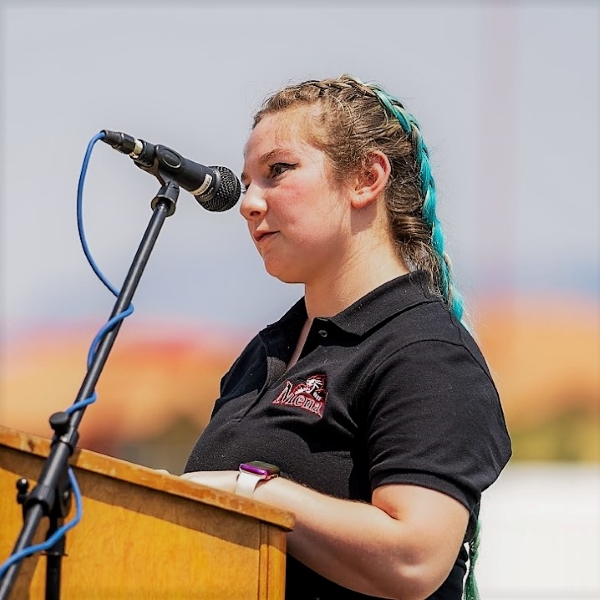
God and Science is an example of interdisciplinary conversations. In this elective class students consider both theology and science. We learn about cosmology, quantum physics, mathematical theories, neurology and ask some of the “big questions”:
- Does science rule out a personal God?
- Is faith opposed to science?
- What is time?
- Is there life after death?
- Does the universe have a purpose?
The hope is for students to see how scientific exploration and theology are not necessarily at odds but actually complement one another.
Senior, Cora, chose to record video interviews of staff about their thoughts on several big topics related to God and Science.
She asked questions such as:
- Do you think science disproves the existence of God?
- Do you think the universe has a purpose?
- Do you think there is a personal God or an impersonal God?
Cora says:
The most general thing I learned last year is that the religious community at Menaul is very diverse and inclusive. Everyone has an open mind towards new ideas and concepts.
Diversity Turns the Teachers into Students, Too
Ask Mr. Sitler, and he’ll tell you he’s a student as well!
I love to teach Comparative World Religion and wish the class were longer than a semester.
What is so wonderful now is that I do not need to bring in guest speakers to share their faith traditions, since we have so many students here at Menaul from around the world who can help us understand Buddhism, Hinduism, Islam, and Chinese philosophy.
When I say “us”, that definitely includes me — our international students teach me a lot.
Teachers learn just as much from the unique community formed within the classroom walls, as the students learn from them.
Creating a safe space to discuss world religions, where everyone feels they can contribute and ask questions, requires constant effort. And yet, the rewards are many.
Classroom Policies Impact Learning
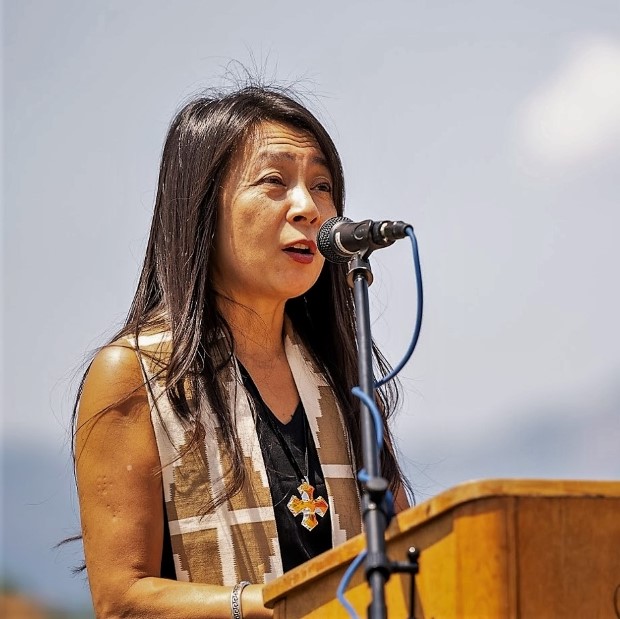
Reverend Takako Terino, the school chaplain and teacher of Middle School Religion, says that a parent wrote to her recently to say how she appreciated her classroom policy:
”We are committed to anti-racism and inclusion. We practice these ideals in this classroom as we strive to be a community in which all people are accepted, treated equally, and able to fully participate.”
When students feel comfortable in class, they can speak their thoughts, and fail, learn, grow, without fear of sounding “dumb”.
Difficult—or should we say, courageous discussions are par for the course, in a diverse community striving to work together, even with significantly different points of view.
An education at a small, private Christian school does not have to be one size fits all. In fact, one of the great things about a religious studies education is to see where students go with the knowledge (and thinking skills!) they have learned.
Read more about Menaul School Religious Studies…

